Sep 2020 1st edition
Sep 2020 1st edition Joy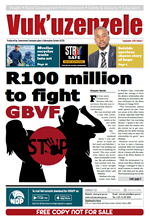
Translations
Caring for someone with Alzheimer’s
Caring for someone with Alzheimer’s UrsulaThose who have a family member with Alzheimer’s disease will have to keep explaining the dangers of the coronavirus disease (COVID-19) to them.
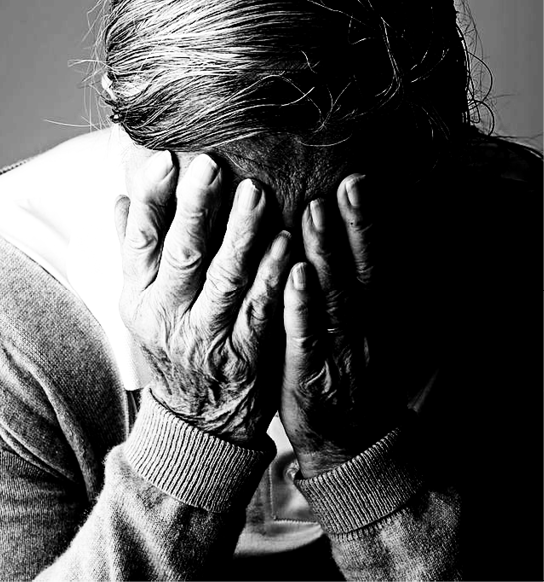 Alzheimer’s is an illness of the brain that affects memory, the ability to understand and logic and reasoning, among other things.
Alzheimer’s is an illness of the brain that affects memory, the ability to understand and logic and reasoning, among other things.
Alzheimer’s South Africa’s Executive Director Petra Du Toit says people who have Alzheimer’s may not understand why they must stay at home or why visitors are not coming to see them.
“People with Alzheimer’s often suffer short-term memory loss. Even though it might be tiring for you, you have to explain things to them over and over. For example, why you can’t see them if you contract COVID-19.”
To minimise the person’s confusion, Du Toit advises calling them to keep in touch.
If someone in a household tests positive for COVID-19, someone else should look after the Alzheimer’s patient. Family members need to be firm to ensure that the patient does not come into contact with an infected person.
If an Alzheimer’s patient requires COVID-19 isolation, Du Toit advises that they are placed in a calm and soothing room while they recover. “If a person with dementia requires isolation, create a special space for them. Adjust the lighting, play soothing music and ask the caregiver to communicate with them in simple language.”
Alzheimer’s is a form of dementia that affects 70 percent of all dementia sufferers. It is commonly found in people over the age of 60. Du Toit says: “Dementia is a collective name for conditions in which progressive degeneration of the brain affects memory, thinking, behaviour and emotion.”
Alzheimer’s symptoms include confusion, getting lost and sometimes not being able to perform tasks such as dressing oneself.
Families looking after a person with Alzheimer’s should identify and utilise support systems, such as nearby public health facilities, private care facilities or their closest Alzheimer’s South Africa office.
For more information, visit www.alzheimers.org.za, call 011 792 2511 or email info@alzheimers.org.za. Alternatively, visit your closest public health facility.
Communities unite in the spirit of ubuntu
Communities unite in the spirit of ubuntu UrsulaThe coronavirus disease (COVID-19) has seen a remarkable rise in community action, with residents of communities across the country coming together to support those in need.
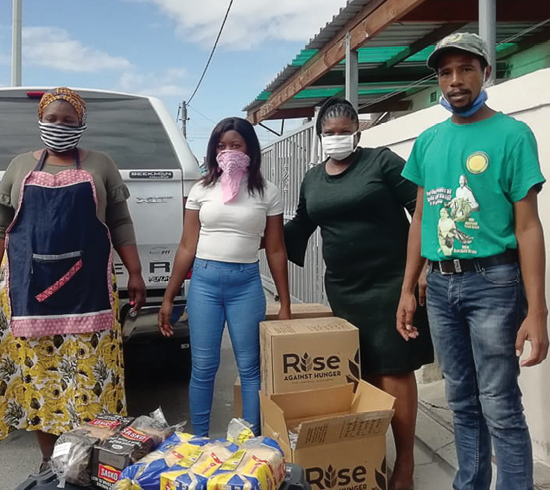 In Cape Town, under the umbrella initiative Cape Town Together, more than 150 community action networks (CANs) have sprung up since the pandemic began. More than 100 other CANs have popped up in Gauteng, the Eastern Cape and KwaZulu-Natal.
In Cape Town, under the umbrella initiative Cape Town Together, more than 150 community action networks (CANs) have sprung up since the pandemic began. More than 100 other CANs have popped up in Gauteng, the Eastern Cape and KwaZulu-Natal.
These CANs are normally started on Facebook and WhatsApp groups. Many have now grown into much larger initiatives which assist needy people with items such as food, clothing, hand sanitisers and sanitary products.
One of the greatest success stories has been the Khayelitsha Site B CAN. In partnership with other CANs and community organisations, the organisation has worked tirelessly to support the neediest members of the Khayelitsha community.
Khanyisa Vedala (29) is the inspirational young leader of the Khayelitsha CAN. He started the network with a WhatsApp group that now has more than 600 members.
“I was already working within community development and the COVID-19 crisis meant that the poorest people in the communities needed help. We got the entire community involved, working with different organisations and leaders to make a difference to these people,” says Vedala.
Every day, the soup kitchen set up by the CAN serves food to more than 150 children, while more than 600 people are provided with regular food parcels. In another initiative, more than 1 000 parcels containing sanitary towels were handed out.
“Even people who have very little themselves have been willing to give to others. It has been wonderful to see how the principles of ubuntu are well and truly alive in our communities,” says Vedala.
CANs in disadvantaged areas have benefitted from the assistance of other CANs in more affluent areas of Cape Town. The Constantia CAN has partnered with the Khayelitsha Site B CAN from the very beginning.
“We can achieve upliftment in South Africa if we all work together to protect the vulnerable members of society,” says Vedala.
*For more information on how to set up or join a community action network, visit the Cape Town Together Facebook group.
Food gardens can help feed your family
Food gardens can help feed your family SiboneloThe Western Cape Government has helped establish over 1 500 household food gardens over the past three months, through the ‘One Home, One Garden’ campaign, which was started to help people affected by the coronavirus pandemic.![A resident receives a starter pack for a food garden. Photo: Western Cape Government A resident receives a starter pack for a food garden. [Photo: Western Cape Government]](/sites/default/files/images_2020_09_01/Garden.png)
Through the initiative, families in Gugulethu, Mitchells Plain, Riversdale, Thambalethu and other areas are provided with ‘starter packs’ consisting of 150 vegetable seedlings, fertiliser and advice on the planting, tending and harvesting of vegetables. Some households have also been provided with chicken houses.
It is hoped that these food gardens will continue to boost food security in the province for many years to come.
“The aim is to assist households to be able to produce enough food to meet basic household food security needs throughout the year. By encouraging communities and households to establish food gardens, we are shifting the focus from food relief to food security,” says Western Cape Minister of Agriculture Dr Ivan Meyer.
Meyer points out that a small garden of around 20m2 can be used to grow a wide variety of vegetables.
“During autumn, you can grow lettuce, cabbage, onion, beetroot and beans while in spring, broccoli, spinach, carrots, turnips and peas are some of the best crops to plant,” he says.
Similarly, one chicken house with four to six chickens can provide a family with six to eight eggs per day, helping to provide protein.
Martha Meyer, who lives in Kraaifontein, received assistance from the department in June. “With the starter pack I was able to start growing my vegetables immediately. Even though I hadn’t done much gardening before, I was able to grow and harvest some carrots and spinach, which I have used to help feed my family of four.”
Meyer says that she is also providing advice to other people in her community on starting their own food gardens.
“Starting a food garden is cheap and it can really help to solve hunger in our communities, especially during these challenging times. Also, if you are able to make a larger garden, you can sell the extra produce and earn an income.”
Harmful traditional practices violate human rights
Harmful traditional practices violate human rights SiboneloWhile Heritage Month celebrates traditional practices that can bring joy to many, there are also harmful traditions that are a violation of human rights.
Some of these practices include Ukuthwala (early or forced marriage), female genital mutilation and unlawful circumcision.
“The Constitution protects the rights of individuals and society to practice their cultures. It is just unfortunate that some people use these practices to hurt others. They infringe on the rights of others as they can be invasive and compromise the victim’s dignity,” says Rabbuh Raletsemo, Deputy Director of the Commission for Gender Equality (CGE).
These harmful practices are committed regularly and have been committed over such a long period of time that communities consider them acceptable.
Raletsemo explains that Ukuthwala, for example, burdens a girl-child or young woman with the responsibility of being a wife, taking care of her husband and, in most cases, children and in-laws too.
“The child’s social development is stunted, as early marriage and fast-tracking into the adult world skips organic developmental phases. In addition, the abducted child is removed from school which deprives her of education and skills training,” says Raletsemo.
Unlawful circumcision is when a young boy is abducted and forced into circumcision against his parents will or without the authorisation of the local traditional leader. “In some instances, the family is coerced to pay money for their child to be released,” says Raletsemo.
Initiation schools and unlawful circumcision have led to many deaths. “According to the Department of Cooperative Governance and Traditional Affairs, approximately 500 boys have died at initiation schools over the past five years and less than 75 cases have gone to courts, leading to 14 convictions,” says Raletsemo.
While genital mutilation (cutting of sensitive genital tissue) is not a common practice in South Africa, it is practised in some African countries. “It impacts young girls socially, and their health and wellbeing.”
Get help
Raletsemo says communities should report human rights violations to the police and institutions like the CGE. “Work with your traditional leaders and hold them accountable to ensure that, as custodians of culture, no practices are used to violate the rights and dignity of any community member.”
For more information or to receive help from the CGE, call the tollfree number 0800 007 709.
Let’s keep each other safe
Let’s keep each other safe JoyOur country has moved to alert level 2 in our response to the coronavirus pandemic. This has come as a relief to all South Africans who have had to live under stringent restrictions for the last five months.
It is a sign of the progress we are making in reducing new infections and demand on our health facilities. It is also a very important development as we strive to restart our economy.But it is too soon to celebrate.
We are still very much in the middle of a deadly pandemic that has taken over 11,000 lives in South Africa alone. At more than half a million confirmed cases, we still have the fifth highest number of infections in the world. And there is always a chance of a resurgence of the disease.
 If we ever need a stark reminder of the need for vigilance, we should look to recent events thousands of kilometres away in New Zealand. Three months since the country was declared coronavirus-free, New Zealand is once again under lockdown. Although the latest outbreak was of relatively few cases, the government swiftly re-imposed lockdown restrictions.
If we ever need a stark reminder of the need for vigilance, we should look to recent events thousands of kilometres away in New Zealand. Three months since the country was declared coronavirus-free, New Zealand is once again under lockdown. Although the latest outbreak was of relatively few cases, the government swiftly re-imposed lockdown restrictions.
Similar restrictions have had to be reimposed in several parts of Europe as they experience a ‘second wave’ of infections. These experiences show just how swiftly things can change when it comes to COVID-19.
It is a wake-up call to any among us who may harbour illusions that we are even close to seeing the end of this grave public health emergency.
Certainly, there are signs of hope. The number of new confirmed cases in South Africa continues to decline. At the peak of the disease just one month ago, we were recording around 12,000 new cases a day. This has dropped to an average of around 5,000 a day over the past week. Our recovery rate stands at 80 percent.
As the country moves to alert level 2, many restrictions on social and economic activity have been lifted. With this comes increased risk of transmission.
We now need to manage this risk and ensure the gains we have made thus far in containing the pandemic’s spread are not reversed. The greatest threat to the health of nation right now is complacency. It may be that we are now permitted to meet friends and family, to visit entertainment venues, to travel for leisure and to consume alcohol in restaurants, bars and taverns.
But as the old adage goes, just because you can, doesn’t mean you should.
Many people who have the coronavirus do not have symptoms and may not even know they are infected. This is a sobering reality because it means that any of us could be infected right now and could unwittingly infect others.
This is particular the case when visiting relatives, especially the elderly and those with pre-existing medical conditions that render them vulnerable to infection. It is also true for attending religious services or cultural activities.
The ‘second wave’ of infections that several other countries have experienced is an ever-present possibility for us too. Although many restrictions have been lifted, it does not mean they will not return should we experience a significant rise in infections. This pandemic is a matter of life and death. We need to adapt and we need to be vigilant.
In the days, weeks and months that lie ahead, we must urgently focus our efforts on recovery. Our economy and our society has suffered a great deal. As we return to economic activity across almost all industries – and work to repair the damage done – we have a responsibility to not let our guard down as individuals, employers, communities, families, professionals, workers and citizens.
None of us wants a return to the early days of extreme lockdown restrictions. We want to move on with our lives. We want our friends and loved ones to remain healthy and safe.
As a nation, let us continue to work together to ensure that we progress. The move to alert level 2 of the lockdown is not a ‘free for all.’ The rules on social distancing, mask wearing, social gatherings and international travel remain.
Our success rests on our ability to abide by these regulations and to ensure that we each behave carefully and responsibly.
Every time we are considering any form of non-essential activity, we should ask: what is the risk of infection to ourselves and to others? Where there is a risk, even a slight one, it is better not to do it.
Let us proceed, as ever, with caution. Let us keep each other safe.
Life is so much sweeter for Davy
Life is so much sweeter for Davy SiboneloWhen Davy Tsopo (35) lost his job as a restaurant cleaner at the end of March, due to restaurant closures brought by the coronavirus lockdown, he could not have foreseen how his life would take a dramatic turn for the better.
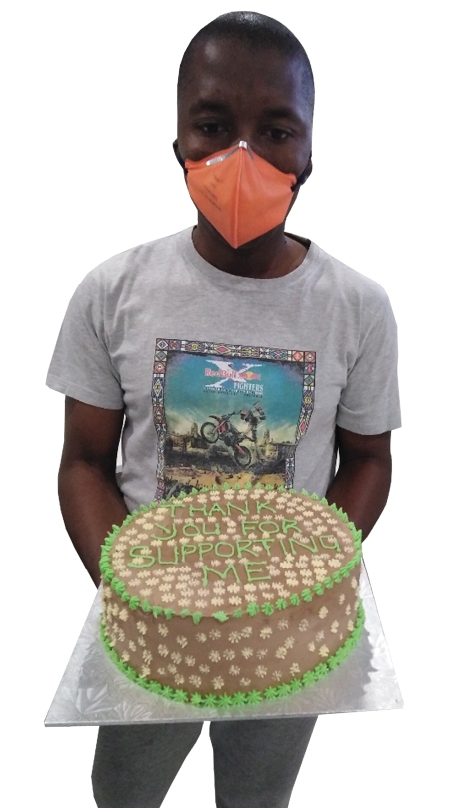 Tsopo, who had worked as a cleaner at a restaurant in Linden, Johannesburg, since 2016, didn’t know what he was going to do to support his wife and one-month-old son.
Tsopo, who had worked as a cleaner at a restaurant in Linden, Johannesburg, since 2016, didn’t know what he was going to do to support his wife and one-month-old son.
“I was very stressed, thinking of the baby and bills,” says Tsopo.
“As we had to stay at home due to lockdown regulations, I spent time watching a baking show on television. I wanted to learn more, so I started watching baking videos on YouTube,” he adds.
Tsopo bought a new oven just before lockdown, but couldn’t get an electrician to come and install it until the country moved to lockdown level four in May. “As soon as it was installed, I decided to try baking muffins. I had never baked before, and they looked like the easiest thing to bake,” says Tsopo.
He was so proud of his first muffin batch that he took a photograph and shared it as his status on WhatsApp. It wasn’t long before family, friends and neighbours started asking him if he baked them himself and how much they cost.
A little while later, a friend asked him if he could bake a cake for her. “I had never baked a cake before, so I first baked one for my family and then one for my friend. She liked it so much, she posted a photograph on Instagram, tagged me and said people could order from me,” says Tsopo.
This was the beginning of Cakey by Davy, Tsopo’s small baking business, and he created Facebook and Instagram accounts to help market his tasty treats.
“Just before Father’s Day, I put a post on social media about my cakes. I landed up with 17 orders and couldn’t bake them all in time, but people were very supportive and happy to wait.
“I am amazed by the support I have received from my Linden community. Some people have even donated ingredients and baking equipment to help me,” says Tsopo.
During the day, Tsopo takes care of his son while his wife is at work. “When she comes home at 5pm, I start baking and bake all night. I love it. I am now stress free, knowing that I can take care of my family,” says Tsopo, who hopes to grow his business.
“I am already booked days in advance, but I need a bigger oven so that I can bake more cakes,” he says.
For more information about Cakey by Davy, visit his Facebook page at www.facebook.com/CakeyByDavy
More medical interns to fight COVID-19
More medical interns to fight COVID-19 JoyThe Health Department has recruited over 2000 medical interns, as a way to help fight the coronavirus disease (COVID-19) in South Africa.
 This move is the biggest intern allocation programme in history, according to the department.
This move is the biggest intern allocation programme in history, according to the department.
The department said the 2 369 locally recruited interns will be joined by 41 peers, who studied abroad and have passed their exams.
The team will be placed in the public healthcare system across the country this year.
Meanwhile, the country will also soon welcome over 650 graduates from the Nelson Mandela Fidel Castro Cuba Medical Programme, who will begin their reintegration projects in preparation for their qualifications to practice in South Africa.
Health Minister, Dr Zweli Mkhize, said human resources for health is the first pillar of the Presidential Health Compact.
“Its premier position amongst the nine pillars highlights the significance government places on strengthening and sustaining human resources for the health care sector. Without doctors, there is no health care system,” he said.
Gauteng will be allocated 698 medical interns, KwaZulu-Natal 550, Western Cape 322, Eastern Cape 216, North West 148, Limpopo 144, Free State 105, Mpumalanga 91 and Northern Cape 42.
The South African Military Health Service will welcome 19 trainees.
Minister Mkhize said he was extremely proud of the department’s achievement to ensure that the South African medical fraternity continues to grow.
“Having met some of these bright young colleagues, I am always left inspired by their passion, enthusiasm and willingness to contribute not only to the fight against COVID-19 but also to the attainment of universal health coverage.” – SAnews.gov.za
Mveliso recycles waste into art
Mveliso recycles waste into art Sibonelo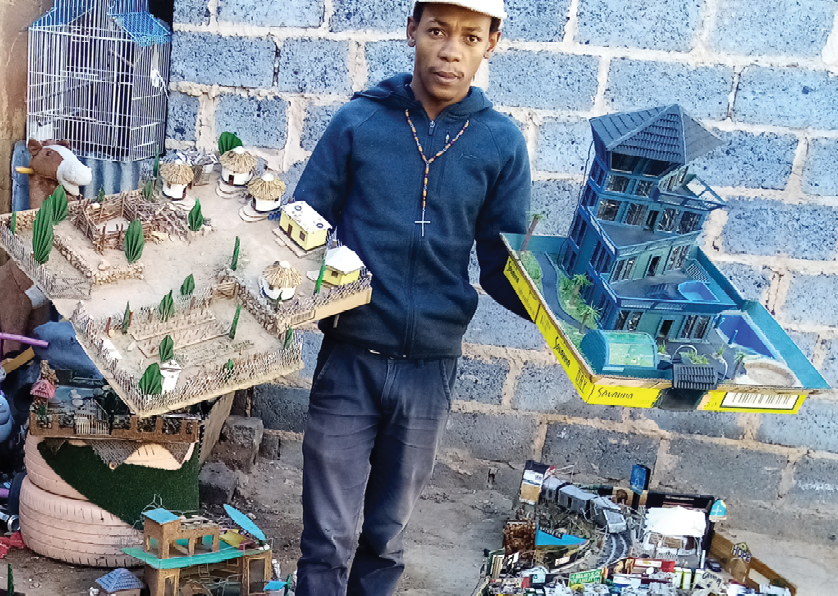 Talented artist Mveliso Ntaba (29) from Ivory Park, in Midrand, is turning recycled household refuse into beautiful works of art.
Talented artist Mveliso Ntaba (29) from Ivory Park, in Midrand, is turning recycled household refuse into beautiful works of art.
When Ntaba graduated from Ekurhuleni West College in 2015, after studying office administration, he couldn’t find a job. “I started selling raw and boiled eggs to make a living,” he says.
Little did he know that this would change his life. “One day when I was selling the eggs, I was bored so I started playing with the plastic packing that the eggs come in. I started cutting and shaping it and made my first miniature house out of it. I realised then that I loved making it and that I love art,” says Ntaba.
In the years that followed, Ntaba has turned his passion for art into a career. He makes miniature houses, cities and townships; picture frames; jewellery; accessories; caps and anything else that his clients ask him to make – all purely from recycled materials that he finds at the dumping site near Halfway House in Midrand. The materials include cardboard, glass, plastic, bottle tops, sand and stone.
“Clients even ask me to make miniature replicas of their own house,” says Ntaba, explaining that it takes about three weeks to make one eight-room miniature house.
“I’m also inspired by watching other people make amazing things. This makes me do even more of the artwork I do,” he says.
As for the future, Ntaba would love to study further, especially art, design and architecture. “I would love to learn how to turn my art into a professional business and I really want to open my own art gallery one day,” he says.
His message to unemployed youth is to be creative, in any way. “You need to find yourself and the things you enjoy. Stick with them, try to improve and make new things,” he says.
To view Ntaba’s artworks, visit his Facebook page @mvelisoteardrop and find him on Twitter: @Mveliso77.
NSFAS powered my dreams
NSFAS powered my dreams JoyThe National Student Financial Aid Scheme (NSFAS) has bridged the financial gap between Karabo Mashego (21) and his plan to further his studies.
Mashego of Sebokeng in Gauteng’s Vaal area says he would not have managed to afford tuition fees and the other expenses that come with post-matric education had he not received a bursary from NSFAS.
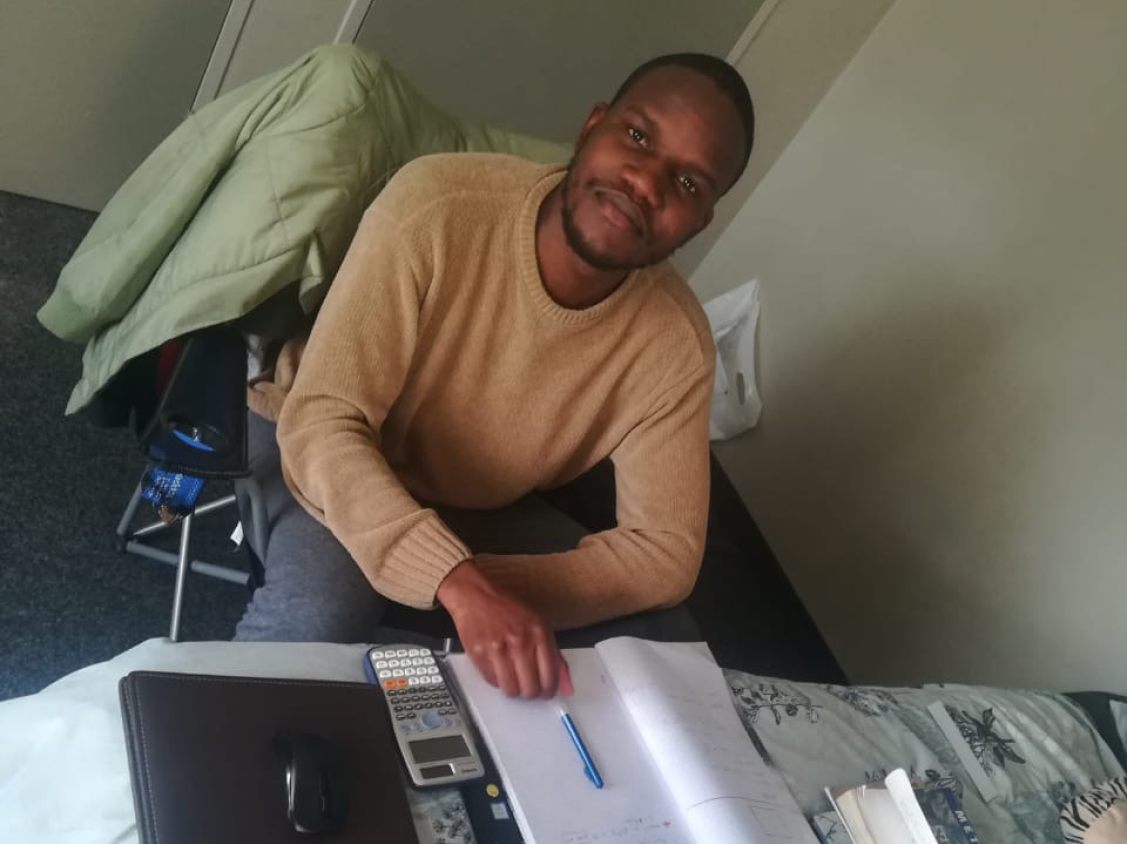 “In addition, the monthly allowance I receive from NSFAS enables me to sleep and study on a full stomach,” he says.
“In addition, the monthly allowance I receive from NSFAS enables me to sleep and study on a full stomach,” he says.
Mashego is a third-year student studying towards a degree in civil engineering at the University of Pretoria.
“Tuition fees are very expensive. For the course that I have chosen, I really could not afford to pay for a semester, never mind a single academic year,” he explains.
Mashego matriculated in 2016 and was a top learner in his class, but had no means to pay for his studies. He successfully applied for funding from NSFAS for the 2018 academic year.
“This gave me the opportunity to make my dream of studying engineering come true. Education plays a huge role in my personal development and it helps me to progress in all that I intend to achieve. Moreover, it empowers me to empower other people in my community and thus contribute to the economy of our country,” Mashego explains.
“I urge young people to apply for NSFAS funding because following your dream is not a free exercise, it needs funding, and NSFAS will bridge that gap for you,” he says.
The Minister of Higher Education, Science and Innovation, Dr Blade Nzimande, has opened the NSFAS 2021 application cycle for a period of four months, from 3 August to 30 November 2020.
Students from disadvantaged and working-class backgrounds who wish to further their studies at any public technical and vocational education and training (TVET) college or university may apply.
To be eligible for NSFAS funding, an applicant must be a South African citizen and come from a family with a combined annual household income of not more than R350 000. The household annual income for students with a disability should not be more than R600 000.
“In the current academic year, NSFAS has funded over 700 000 students, 248 242 at TVET colleges and 481 339 at universities (students with registrations data). This is a 20 percent increase from the previous year when we compared registration data received in the same period of 2019 versus 2020,” says Minister Nzimande.
NSFAS accounts for 40 percent of the undergraduate population at universities and 70 percent at TVET colleges.
How to apply
- Applicants must visit www.nsfas.org.za and click on myNSFAS. They must create a myNSFAS account, click the APPLY tab, answer the questions on screen and upload the required documents. Once that is done, they must click SUBMIT.
- After clicking SUBMIT, the application reference number will appear on the screen. The reference number will also be sent to the cellphone number and email address that the applicant provided.
- Applicants can use a cellphone, tablet or computer to apply. The NSFAS portal has undergone minor changes to make it easier to use and more secure.
- New applicants need a copy of their ID or birth certificate to register and create a profile on the myNSFAS portal. Applicants with existing accounts need to log into their accounts – remember, only one profile per applicant is allowed.
- The applicant must give consent for their personal information to be checked by a third party and if they do not agree to this, they will not be allowed to continue with the application process.
- As a result of the coronavirus pandemic, applicants will not be required to submit or upload the consent form. Instead, they will be asked to accept the conditions on the electronic consent form, along with the terms and conditions for funding.
- Students must still submit their supporting documents (own ID copy, parent/guardian proof of income, parent/guardian ID copies, and/or Annexure A for applicants with disability).
Nursing hero dreams big
Nursing hero dreams big UrsulaDespite having her dreams put on hold by the coronavirus pandemic (COVID-19), registered nurse Zandile Mawela (27) remains determined to obtain her master’s degree and work overseas. 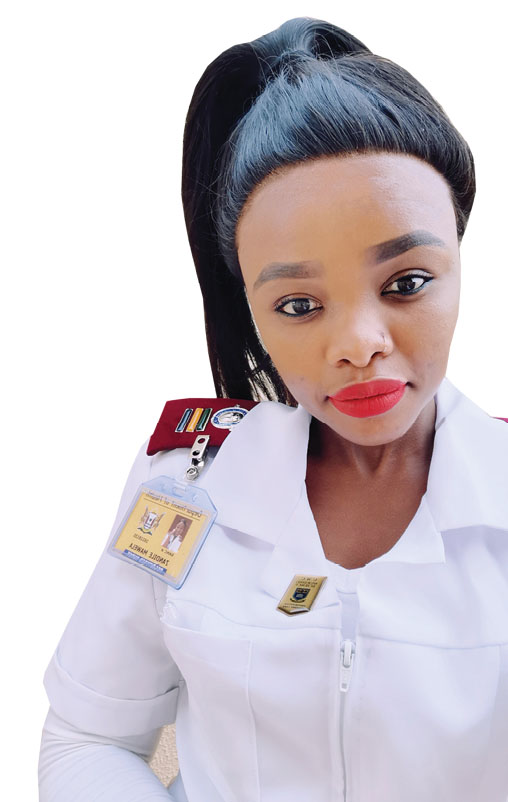
Mawela, one of the many heroic healthcare workers who have played a crucial role in the fight against COVID-19, has been working as a locum and saving lives at various hospitals across the Western Cape. A locum is a person who temporarily fulfills the duties of another.
“After working as a nurse for three years in the Eastern Cape, I was excited as I secured a position in Saudi Arabia and was planning to relocate. Then lockdown happened and I was unable to travel,” she says.
Despite this, she remains positive, hardened by her tough journey to qualify as a nurse and the extreme hardship and poverty she faced growing up in Mbenge, a small village near Cala in the Eastern Cape.
As the primary care giver to her younger brother and a foster parent to her sister’s children, she has faced tough times emotionally too.
Growing up in a poor family was not easy, neither was losing her father when she was only four-years-old and her mother when she was 17. Her grandmother, who raised and lived with her, was also tragically raped and murdered.
“We lived in two rondavels, which always leaked when it rained. Almost every day my grandmother would send me next door to ask for basics.
Her life changed when she was accepted into the Engen Maths and Science School in Cala.
“I attended Batandwa Ndondo Senior Secondary and was one of a handful of learners accepted into the Engen programme from my school. I started to believe in myself. My confidence grew and the idea that I could be the first person in my family to pass matric and go to university seemed possible,” she says.
Every Saturday morning Mawela attended the free supplementary maths, science and English classes.
Mawela lost her uncle on the day of her first matric exam, but she persisted and not only passed, but also secured a scholarship to the University of the Western Cape to study nursing.
There are nine Engen Maths and Science Saturday Schools across the country. Learners are nominated by their teachers in Grade 9, to write a test. If successful, they can attend the programme.
Mawela is determined to contribute to the health of her community while she waits to realise her dream of working overseas.
Ploughing her way out of poverty
Ploughing her way out of poverty UrsulaWhen Bulelwa Makonxa (28) could not find a job after graduating from an agricultural college, she started her own farm to create a job for herself and members of her community.
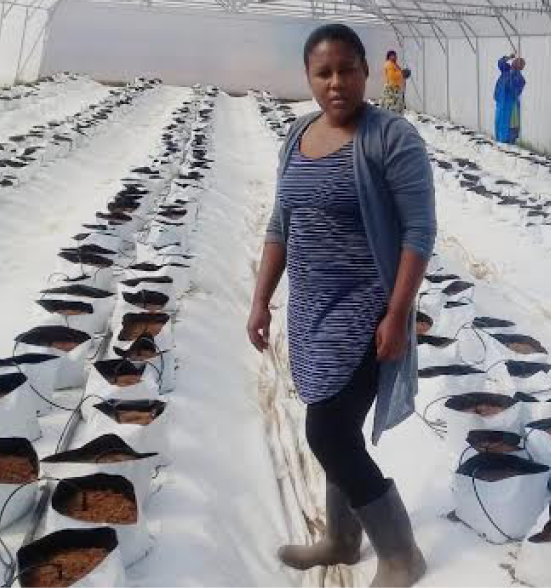 She graduated with a diploma in animal production from the Middledrift Fort Cox College of Agriculture and Forestry in the Eastern Cape in 2016. After moving to Durban to stay with her aunt, she eventually realised her qualification would be best used by starting her own farm.
She graduated with a diploma in animal production from the Middledrift Fort Cox College of Agriculture and Forestry in the Eastern Cape in 2016. After moving to Durban to stay with her aunt, she eventually realised her qualification would be best used by starting her own farm.
“I heard someone talking about the iThala Development Finance Corporation which provides financial support to businesses in the province. I went to their offices and applied for a loan, which was approved in November 2018,” she says.
By the time the loan was approved, she had already registered her business – Aqhamile Agri Enterprise (Ltd) – and today has 16.5 hectares planted with spinach, cabbage, cucumbers, tomatoes, butternut and peppers. She supplies fresh produce to the Durban Fresh Produce Market in Clairwood and a number of local retailers.
“I wanted to start something of my own and to make a difference in the lives of people who were unemployed like me,” she says.
She experienced challenges, like many other emerging businesses, but was fortunate to receive 10 hydroponic tunnels from the Agribusiness Development Agency (ADA), which is an entity of the Department of Agriculture and Rural Development. It aims to ensure a diverse, deracialised and sustainable agribusiness sector in KwaZulu-Natal (KZN).
The ADA also provided her business with a mobile cold storage unit, ripper, other farming equipment, infrastructure and mentorship.
Makonxa has learnt that starting a business without enough working capital comes with a lot of challenges.
“I had 22 employees and had to cut down to eight because the farm could not generate enough money to pay salaries. I am still working on addressing this challenge,” she says. “Creating jobs is important to me because many people in my area did not have an opportunity to get an education and they look to farms for employment.”
Makonxa says the coronavirus pandemic has negatively affected her business because of all that had to be done to avoid getting sick and to observe lockdown regulations.
“People were scared to come to work and we ended up losing a lot of produce,” she says.
Agricultural businesses around KZN can apply for assistance from the ADA by calling 033 347 8600 or emailing info@ada-kzn.co.za
Policewoman leads the way during COVID-19
Policewoman leads the way during COVID-19 UrsulaBrigadier Mashadi Selepe is a hero within the South African Police Service (SAPS). She has served the country with distinction throughout the coronavirus disease (COVID-19) outbreak, despite getting the disease herself. 
The West Rand District Commander for Visible Policing in Gauteng, Brigadier Selepe has served in the police force for over 30 years.
While serving the public during the COVID-19 pandemic, she contracted the virus and had to stay at home for six weeks. As soon as she had recovered, however, she was back at work, playing a leading role in important police operations.
“For me, policing is a calling and a passion,” says Brigadier Selepe, who was the first woman officer in her public policing unit and one of the founding members of the first child protection unit in South Africa, based in Soweto.
During the pandemic, she says the police force has had to deal with a number of challenges.
“We had to adapt to something completely new while trying to make people understand why we had to enforce the disaster management regulations. We hit the ground running and were ready for the unknown, along with still carrying out our normal duties,” says Brigadier Selepe.
Selepe says that police often had to also risk their lives on the frontlines, with a risk of catching the virus.
“I was infected with COVID-19. You put your life at risk for the sake of your country, because it is your calling. As a leader, I had to be there and lead my members and educate them on what is expected of them.”
With Public Service Month in September, Brigadier Selepe encourages her fellow police officers to put the people of South Africa first.
“My message to my colleagues is to continue to do what is expected of us. Being a public servant must be taken as a calling to serve people with pride, with dignity and with protection of human rights. We must always be there for our communities, as we are the ones they turn to first.”
Brigadier Selepe also encourages young South Africans to consider joining the police force.
“Many people do not realise that there is more to the police force than law enforcement. We have social workers, psychologists, communications people, scientists and many others all working for the SAPS. So there can be a career for every type of person.”
R100 million to fight GBVF
R100 million to fight GBVF JoyFor four years, Ntomboxolo Mrubata (38) did not know that she was in an emotionally abusive relationship.
She was involved with a man who continuously hurled insults at her and made her feel worthless.
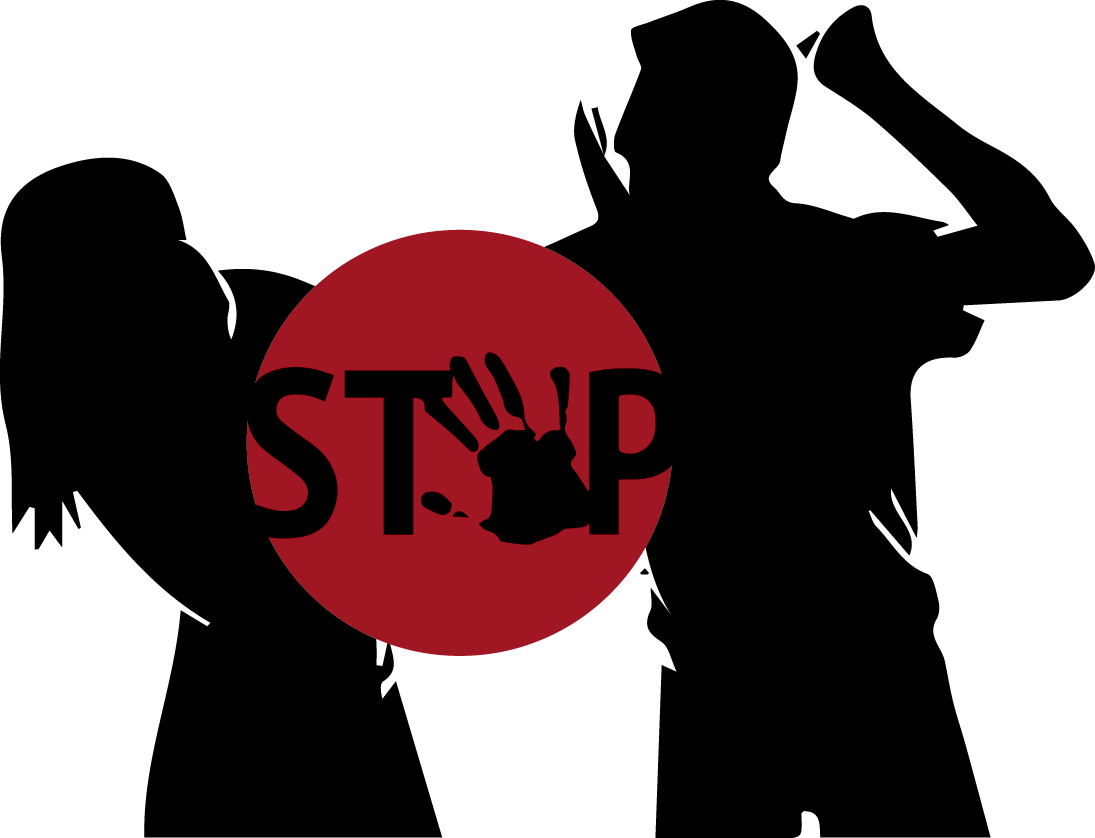 “The emotional abuse I was subjected to made me feel small and belittled. I felt like I was nothing and could not do anything for myself. This man would even restrict my movement, he basically owned me. My self-confidence had reached rock bottom, I never thought that I could get out of that dark whole,” said Mrubata.
“The emotional abuse I was subjected to made me feel small and belittled. I felt like I was nothing and could not do anything for myself. This man would even restrict my movement, he basically owned me. My self-confidence had reached rock bottom, I never thought that I could get out of that dark whole,” said Mrubata.
Mrubata who originates from Eden in Western Cape, eventually gained the courage to leave the abusive relationship after attending an information session facilitated by the Bitou Women of Change NGO.
“This information session really opened my eyes. I was not aware of the other forms of abuse, especially those that did not involve physical harm. I realised that I too was being abused.” I spoke to the coordinator after the session and she invited me to get counselling and life skills training that would help me leave the relationship for good,” says Mrubata.
Mrubata received skills on how to start a business, computer skills and currently working towards obtaining a driver’s license with the assistance of the Bitou Women of Change.
“With the information I received from Bitou Women for Change, I managed to start a small business to sustain myself. I sell chips and fat cakes. This business has given me the confidence to never return to that abusive relationship I was in.”
The Bitou Women of Change NGO is a community development organisation which empowers and skills women that were in abusive relationships. The organisation offers business development skills, self-development programmes, computer skills and learner’s licence courses. In addition to this, Bitou also offers counselling for abused victims.
Funds pumped into fighting GBV
Bitou Women for Change is one of the 131 organisations that fight gender-based violence and femicide (GBVF)that have received funding from the Department of Social Development (DSD).
The organisation got R300 000 funding which was administered by the National Development Agency (NDA) which is an entity of the DSD. The funds came from the R100 million donated by the Criminal Assets Recovery (CARA) Funds Account to organisations that are fighting GBVF.
Bitou Women for Change received the first R150 000 from the NDA in June and is waiting for the second payment. The organisation is going to use this money to buy more computers to ensure that more survivors of GBV receive computer skills and more women can attend the courses that the organisation offers.
Minister of Social Development Lindiwe Zulu says the CARA funding is available over a two-year period. She explains that R95 million will be used to financially support the work of the organisations, while the remaining R5 million will be used to mentor and coach emerging civil society organisations.
Men take a stand
The funding from DSD will play a part in also educating men and boys about the dangers of GBVF.
Started in 2014, Masikhulumeni Madoda is an NGO that offers shelter and support to survivors of GBVF – both male and female. It offers shelter, counselling and intervention for victims of abuse. The organisation also works with men to help curb abuse and femicide.
Masikhulumeni Madoda educates abusers on how to deal with life challenges and problems that they face without resorting to violence.
In addition to this, Masikhulumeni Madoda has awareness programmes for young men where they are taught about the challenges they will face as they grow older and the best ways to handle these problems.
Treasurer of the organisation Mfana Mavayeya says that even though they focus is on therapy, they also assist victims in reporting cases to the police and in seeking protection orders against their abusers.
“If the abuse victim says that they don’t feel safe in going back to their home, we accommodate them at our shelter while they rebuild their lives,.” says Mavayeya, explaining that people who stay at the shelter receive life skills training.
In cases where the victim of a GBV decides to go back home, a social worker from Masikhulumeni Madoda makes weekly visits to the home in order to see if there has been any progress. This also helps the organisation detect at an early stage if there is a possibility of the abuse to continue.
“Our organisation works by first offering counselling for the victim and education for the abuser. When an abused person comes to us, we offer them shelter, food and clothes first. We then counsel them and ask if they are willing to go through a counselling session with their abuser.” says Mavayeya.
Thanks to the R150 000 funding Masikhulumeni Madoda also received from the DSD, the organisation recently upgraded from a four -to a seven-bed accommodation facility where it houses survivors.
Restoring hope for GBV victims
Restoring hope for GBV victims SiboneloWomen survivors of abuse are being given a chance to heal and start over, thanks to a Gauteng Provincial Government centre.
Called Ikhaya Lethemba, which means ‘home of hope’ when loosely translated from IsiZulu, the one-stop centre was established in Braamfontein, Johannesburg, in 2004.
According to Community Safety Spokesperson Ofentse Morwane, the centre was established to meet the needs of victims of sexual offences and domestic violence so that they can receive services under one roof without being sent from pillar to post. Survivors and their dependent children may also stay there for up to six months.
A number of provincial departments contribute to the centre, including the Department of Social Development, which funds three non-government organisations (NGOs). These NGOs run various initiatives, including the Ithemba Rape and Trauma Support Centre, Teddy Bear Foundation (children services) and Life Line. The Department of Education is also involved – it finds local schools for children who have been moved out of their communities. The Department of Health provides medical and related legal services to survivors.
People needing help may go directly to the centre or may be referred by the South African Police Service and other organisations.
Services for victims
Social workers and victim supporters help abused women and children when they arrive at the centre. They are given a medical check-up and any evidence that may be needed in a court case is collected. If needed, medicine to prevent HIV is given.
If needed, the victims will be admitted to the shelter, which has an early childhood development centre, library, gym and an in-house skills development centre that includes a sewing room, printing room, computer room and salon.
If the survivors need to testify in court, they will be helped through the process so that they know what to expect.
Over the years, the centre has provided a safe space for healing to over 2 000 women and children. “Some started their own NGOs to assist other women, some are in business, others are employed or furthering their studies,” says Morwane.
Another such centre has since been opened in Evaton in the Vaal area.
The department urges community members and families to play a part in supporting victims and survivors of abuse. Communities must also stop stigmatising survivors and should not look away if they witness abuse.
If you are in Johannesburg and are in need of Ikhaya Lethemba services, call 011 240 3600 or 066 010 8739.
Second funding wave for sports and arts sectors
Second funding wave for sports and arts sectors UrsulaAthletes and artists who didn’t benefit from the first round of COVID-19 funding can re-apply. 
Artists and athletes have a second chance to benefit from the Department of Sport, Arts and Culture’s (DSAC) coronavirus (COVID-19) relief fund.
The second wave of funding is only available for those who have not yet benefitted.
Sport, Arts and Culture Minister Nathi Mthethwa says R77 million has been set aside to assist sports and arts role-players. Of this, R11.5 million has been set aside for a partnership with the Department of Small Business Development (DSBD).
“If the entire amount is to be paid specifically towards beneficiaries and no other costs are considered, the allocation will cover 11 666 athletes and artists,” he says.
The second funding wave will pay out a maximum once-off amount of R6 600 per person.
Sports relief
In the sports sector, eligible applicants include athletes, coaches, technical support personnel and freelance fitness instructors or practitioners.
Applicants must make an income solely from participating in sports competitions, events and fitness activities, or be freelancers. Applications must be submitted to the applicant’s national sporting federation, except for fitness instructors or practitioners who must submit on the department’s website.
Federations and sport entities will sign applications off and send all recommended applications to the department for further processing, the Minister says.
Registered businesses and their employees, those who have other sources of income or benefitted from the first funding wave, and athletes on fixed-term contracts do not qualify.
Arts relief
In the arts sector, the fund covers performance and celebrations, music, festivals and events, books and publishing and heritage practitioners. Other arts sector participants will be covered through a partnership with the DSBD, the Minister says.
“A joint allocation of R23 million has been set aside to respond to a plea from the Cultural and Creative Industries Federation of South Africa, for the craft, design and visual arts sectors,” he says.
Practitioners whose sole income is made from arts-related activities qualify. Those who depend on gigs, freelancers and independent contractors also qualify.
Only one application is allowed for those in the arts sector.
Visit the department’s website at www.srsa.gov.za to view the application criteria or call the toll-free number 0800 724 278 for more information. Applications close on 31 August 2020.
South Africa to get rowing
South Africa to get rowing SiboneloThe development coordinator for Rowing South Africa (RowSA), Virginia Mabaso, has made incredible strides in developing rowing in South Africa, getting children from all sectors of society involved in the sport. 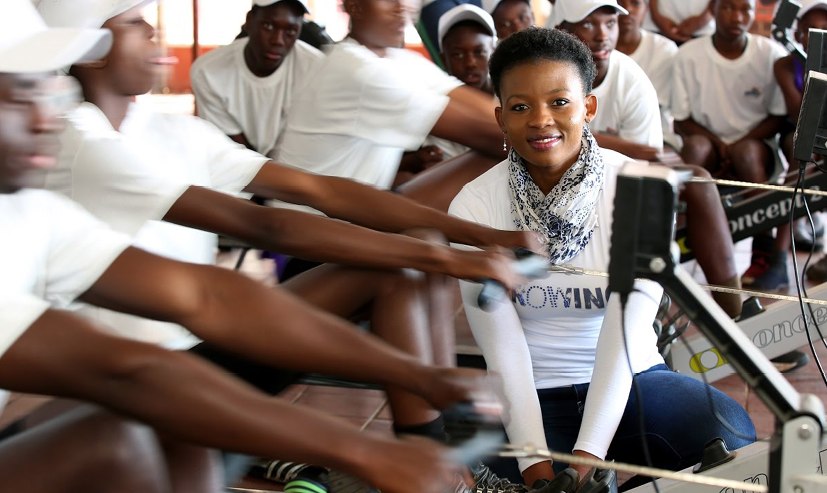
Mabaso became an administrator for RowSA in 2007, and soon developed a deep love for the sport.
“The first race I attended was the South African School Championships. After attending the event, it motivated me to read the rules of rowing and volunteer my time to officiate the sport. I fell in love with it!” Mabaso says.
Mabaso started to challenge herself to make a real difference in the sport, as the first development manager for RowSA.
“I came into RowSA without any written documents as to how to develop the sport in the country, so I had to develop plans for the whole process. I was exposed to a whole lot of people in all the provinces. We’ve met incredible kids, incredible coaches and educators.
“The biggest focus right now is to get children into the indoor rowing programme and then onto the water. We have started to add a province into this model every year. Each year, we continue to go into new areas, engaging with the community and local governments.”
Last year, RowSA managed to get the North West province involved in the development programme, giving 27 children the chance to race in the South African National Championships.
“This year we were supposed to also reach Mpumalanga and the Free State, but due to the lockdown we didn’t have that opportunity.”
Mabaso says that apart from rowing being a healthy and fun sport, it can also turn into a career.
“We encourage educators to get involved by contacting us so that we can help with starting up and sustaining programmes.”
Mabaso is also an inspiration to all young women who want to get involved in sports administration. Thanks to her achievements in developing rowing, she won Sports Administrator of the Year at the SA Sports Awards in 2015 and 2018.
For more information about getting involved in rowing, contact RowSA at 011 440 0965.
Spreading COVID-19 awareness to communities
Spreading COVID-19 awareness to communities UrsulaThe Akehlulwalutho Community Organisation is educating learners about the coronavirus disease (COVID-19) and helping to enforce social distancing at schools, grant pay-out points and community gatherings.
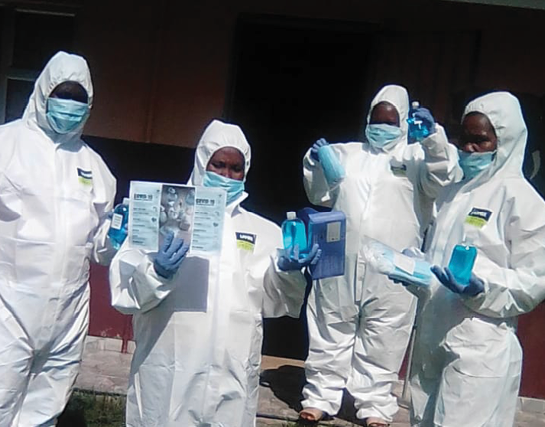 Based in Hluhluwe, KwaZulu-Natal, the non-governmental organisation is teaching people how to avoid spreading the virus by ensuring social distancing and practising good hand hygiene habits.
Based in Hluhluwe, KwaZulu-Natal, the non-governmental organisation is teaching people how to avoid spreading the virus by ensuring social distancing and practising good hand hygiene habits.
“We have also donated sanitisers to each learner,” says Akehlulwalutho founder Thobile Sizani (46).
A team of 10 youth from Akehlulwalutho help to check people’s temperatures and maintain social distancing at grant pay-out points.
“We work with the South African Social Security Agency’s (SASSA) staff to enforce social distancing and check temperatures. If we record a temperature above 38 degrees Celsius, we arrange for the person to be tested for COVID-19,” says Sizani.
The organisation, which started its COVID-19 awareness programme in early April, has also partnered with the National Development Agency (NDA) to raise more awareness and help elderly people who have comorbidities, by fetching their chronic medication from local clinics and delivering it to their homes.
“The elderly and those with comorbidities have been classified as high-risk patients. If they go and queue at a clinic for their medication, they are risking contracting COVID-19,” Sizani explains.
SASSA partners with CSOs
As part of SASSA’s efforts to raise awareness about COVID-19, it has partnered with 52 civil society organisations (CSOs) across the country.
NDA Chief Executive Officer Thamo Mzobe says the CSOs have employed 520 people as part of the programme.
“They assist communities with various registrations to access government relief funds, such at the SASSA Social Relief of Distress Grant and the Department of Agriculture’s Disaster Relief Fund for small-scale farmers.”
Through this partnership, the NDA has provided assistance to over 76 000 households to date.
The NDA ensured training for the CSOs, with provincial teams from the departments of social development and health, SASSA and municipalities. It also provided protective clothing, including face masks, gloves and hand sanitisers, and pamphlets in all local languages from the Government Communication and Information System.
For more information, contact the NDA at 011 018 5500 or email info@nda.org.za.
Suicide survivor shares story of hope
Suicide survivor shares story of hope UrsulaThe coronavirus (COVID-19) pandemic is affecting the mental health of millions of people around the world. People affected by the disease or by its economic impacts, often feel high levels of stress and anxiety. For some people, the difficult situations they face can be too much to bear, and they may even consider taking their own lives.
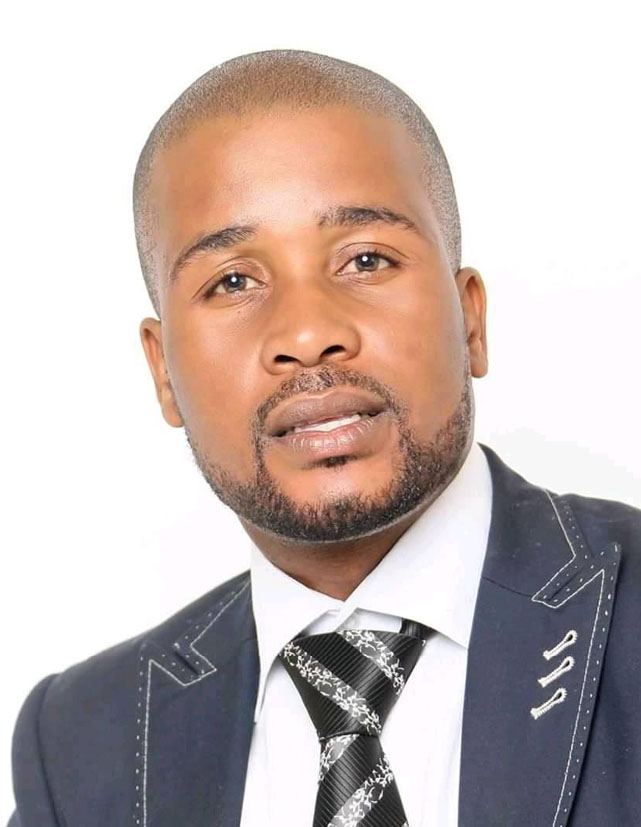 World Suicide Prevention Day, which takes place on 10 September, reminds us all to take mental health seriously and to get help for yourself or a loved one before it is too late.
World Suicide Prevention Day, which takes place on 10 September, reminds us all to take mental health seriously and to get help for yourself or a loved one before it is too late.
Nkululeko Khanyi, a suicide survivor from KwaZulu-Natal, is an activist and public speaker who provides support to depressed and suicidal people, through the Ungazibulali Awareness Campaign.
Khanyi lost his life savings in a scam in 2010, and then lost several family members to tragic accidents and illness.
“I felt like I could not take the pain anymore. I felt weaker every day and had nightmares every night. I attempted suicide twice, once through overdosing on medication and the other by hanging,” says Khanyi.
He was admitted to a mental health hospital, where he stayed for three months and received the help he needed to better deal with the struggles he faced in life.
Khanyi stayed with a friend for three months, and then started his own company. He went on to do public speaking about depression and suicide, and also started the Ungazibulali Awareness Campaign and support group.
“People who are severely depressed and thinking about suicide need a place to talk. A place where they can cry without being looked down on and a place where they can heal. That is what the support group is about,” says Khanyi.
Khanyi adds that during COVID-19, he has noticed an increase in the number of depressed and suicidal people.
“People have lost their jobs, there is increased hunger and relationships are falling apart. In our organisation, we are receiving around 250 calls per day from people who might be thinking of committing suicide.”
Khanyi’s advice to suicidal people is to seek help as soon as possible.
“You need to talk about your pain because keeping it to yourself will just make things worse. Find someone that you trust who you can speak to, and seek professional help if you are thinking of ending your life.”
Contact the Ungazibulali Awareness Campaign at 011 524 6147 or 083 490 2291.
Tourism sector on its way to recovery
Tourism sector on its way to recovery SiboneloThe South African tourism sector is on the road to recovery after months of hardships that include the loss of revenue and retrenchments due to the coronavirus (COVID-19) pandemic.
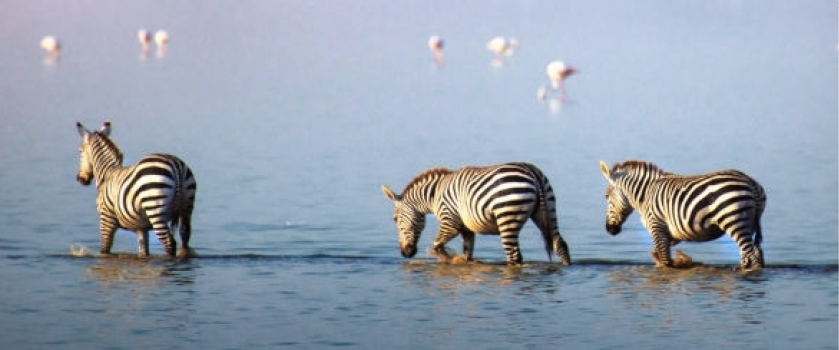 “As we pick up – not from where we have left, but rather in a new environment – we are putting together the pieces of a new path towards recovery…,” says Minister of Tourism Mmamoloko Kubayi-Ngubane.
“As we pick up – not from where we have left, but rather in a new environment – we are putting together the pieces of a new path towards recovery…,” says Minister of Tourism Mmamoloko Kubayi-Ngubane.
She says the department is mindful that tourism is critical for the recovery and growth of the broader South African economy and adds that she appreciates the input received from established and emerging tourism stakeholders on ways to rebuild the sector.
“Our road to recovery as a sector has begun. We will, in the coming weeks, consolidate inputs received on the Tourism Sector Recovery Strategy before we submit our plan to Cabinet,” she adds.
She says the department has a responsibility to ensure that as it recovers and grows, it brings along the previously disadvantaged groups, thereby ensuring the inclusivity, transformation and sustainability of the sector.
“We will use our Tourism Equity Fund as a mechanism to support this transformation imperative in the sector,” she says.
Minister Kubayi-Ngubane says President Cyril Ramaphosa’s announcement to move to Alert Level 2 of the COVID-19 risk-adjusted strategy will reignite business activities and save jobs.
The Minister is confident that the health and safety measures put in place will protect employees, suppliers and tourists.
“Our main goal is to ensure that no tourism facility becomes a source of the spread of the pandemic and we are encouraged that since the beginning of the opening and bringing activities back, we are still doing well,” she says.
Under level 2, the Minister says the sector is allowed to provide accommodation for inter-provincial leisure travellers but must make sure that its reception and restaurants are never more than half full.
Licensed restaurants and bars must respect the curfew and close in time for workers and visitors to be home by 10pm.
Places of attraction are also open. These include theme parks, amusement parks, water parks, family entertainment centres, zoos, aquariums, science centres, nature and game reserves, national parks and other entertainment and cultural attractions.
However, the Minister reminds people that social distancing, sanitisation, wearing of masks and marking floors where tourists must stand when queuing must be maintained, among other precautionary measures.
Tutoring is a phone call away for North West learners
Tutoring is a phone call away for North West learners UrsulaPupils who are battling with a subject can now speak directly to a tutor who will help them understand their work.
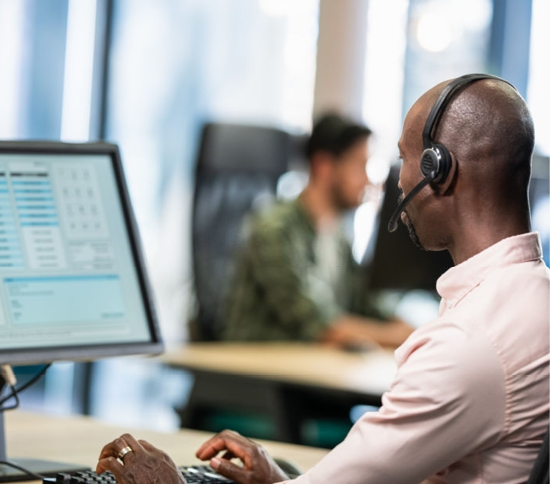 The North West Department of Education is bringing the classroom closer to learners through a programme called Dial-a-Tutor.
The North West Department of Education is bringing the classroom closer to learners through a programme called Dial-a-Tutor.
Pupils in grades eight to 12 who call a toll-free number receive personal tutoring from a subject specialist.
The department says the programme was initially meant for the four-week school break but because of the unpredictability that comes with the coronavirus, it might continue into the new year.
Neo Macklein (17) of Onkabetse Thuto Secondary School says when she called the toll-free number, she was helped to understand her mathematics and accounting work.
One of the subject specialists, Percy Modillane, who offers business economics tutoring, says the programme gives learners the opportunity to raise questions without fear of their classmates’ reaction.
He says teachers also benefit because they are able to request extra materials for their subjects.
North West MEC of Education Mmaphefo Matsemela encouraged learners to use the toll-free number effectively.
“I take this time to encourage learners to strive on until they realise their dreams. I also urge our school community in the form of parents and teachers to embrace this programme, as well as to support learners to utilise the platform in order for it to be successful,” she says.
“We understand that you are approaching exam time under a serious pandemic and as such, the department will provide the Grade 12 learners with psycho-social support in October just before year-end examinations,” says MEC Matsemela.
Learners in the province who would like to use Dial-a-Tutor’s services can call 0800 383 383 from Mondays to Fridays, between 7am and 8pm.
What you should know about Level 2
What you should know about Level 2 UrsulaWhile citizens have a lot more freedom now that the country has moved to coronavirus (COVID-19) alert Level 2, social distancing must be observed, masks must be worn and care must be taken to protect the elderly and those with underlying conditions.
“All indications are that South Africa has reached the peak and moved beyond the inflection point of the curve,” said President Cyril Ramaphosa when he announced the move to Level 2 recently.
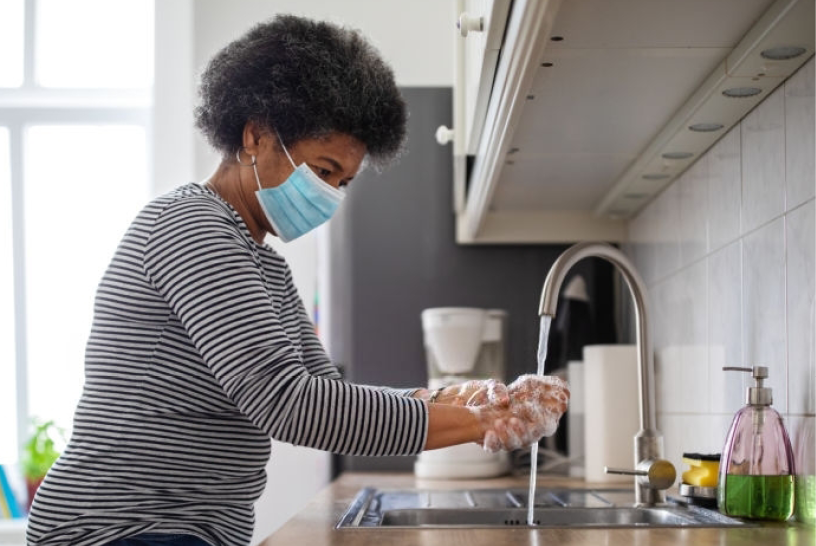 He explained that the number of new confirmed cases has dropped from a peak of over 12 000 a day to an average of around 5 000 a day.
He explained that the number of new confirmed cases has dropped from a peak of over 12 000 a day to an average of around 5 000 a day.
In addition, the recovery rate is 80 percent; the number of active cases is declining daily; fewer people are presenting with symptoms at health facilities and requiring admission to hospital; and the demand for COVID-19 tests has dropped.
The Minister of Cooperative Governance and Traditional Affairs, Dr Nkosazana Dlamini-Zuma, recently briefed the nation on Level 2 regulations.
“When we open the economy, it doesn’t mean the risk is lower. We are trying to balance livelihoods. The virus does not move, people move the virus.
“We must ensure that we keep to the health protocols. If we don’t, we will see the next wave of infections which we would like to avoid,” she said.
Permitted under Level 2
The Minister said that the following is allowed, with the appropriate health and safety protocols in place:
- Visiting family and friends.
- Social events at homes (maximum of 10 visitors at a time).
- Gyms and fitness centres (maximum of 50 people at a time).
- Tobacco sales.
- The sale of alcohol, by licensed premises for off-site consumption, from 9am to 5pm, Mondays to Thursdays.
- The sale of alcohol, at restaurants, bars and taverns, daily until 10pm.
- You can travel across provinces.
- Accommodation, hospitality venues and tours.
- Gatherings, including funerals, weddings and religious events (maximum 50 people).
- Cinemas (maximum 50 people). Tickets must be bought via a booking system.
- Theatres, concerts and live performances (maximum 50 people).
- Casinos (maximum 50 percent of floor space, with 1.5 metre social distancing).
- Auctions.
- Professional and non-professional sports matches, authorised by the relevant sporting body, (no spectators allowed).
- Concerts and entertainment events (maximum 50 people).
- Events at function venues (maximum 50 people).
- The following places are now open to the public: Sports grounds and fields; public swimming pools (maximum 50 people); beaches and public parks; and museums, galleries, libraries and archives.
- Personal care services, including hairdressing, beauty treatments, make-up and nail salons and piercing and tattoo parlours.
What’s not allowed?
- Curfew remains in place between 10pm and 4am, except where a person has a permit or is attending to a security or medical emergency.
- International travel.
- No gatherings of more than 50 people.
- Night vigils are not allowed.
- Nightclubs remain closed.
- No international sporting events.
- Male and female initiation practices are prohibited.
- All visits by members of the public to correctional centres; remand detention facilities; police holding cells; military detention facilities; health establishments and facilities, except to receive treatment or medication; and older persons' residential facilities are prohibited.
- A person may not be evicted from his or her land or home or have his or her place of residence demolished for the duration of the national state of disaster, unless granted by a competent court.
“We continue to encourage people to stay at home if they can and, if possible, to work from home, especially if they are over the age of 60 or have underlying conditions.
“To keep the remaining restrictions in place and to maintain some of the essential elements of our health response, it is necessary that we extend the national state of disaster once again until 15 September 2020,” the President said.
Government will also strengthen its efforts to enforce health and safety measures in the workplace and retail stores and on public transport, to protect workers and commuters and create a safe environment for businesses to operate.
“Let us continue to exercise the greatest caution and care, and remain ever-vigilant. Let us continue to stand united in our determination to defeat this virus. Let us press forward – one nation, resolute, hopeful and courageous,” the President said.
Women saving lives at sea rescue station
Women saving lives at sea rescue station UrsulaA sea rescue base in Cape Town is home to 11 brave women who are finding opportunities for personal growth, while also assisting with important operations such as responding to accidents in the ocean. 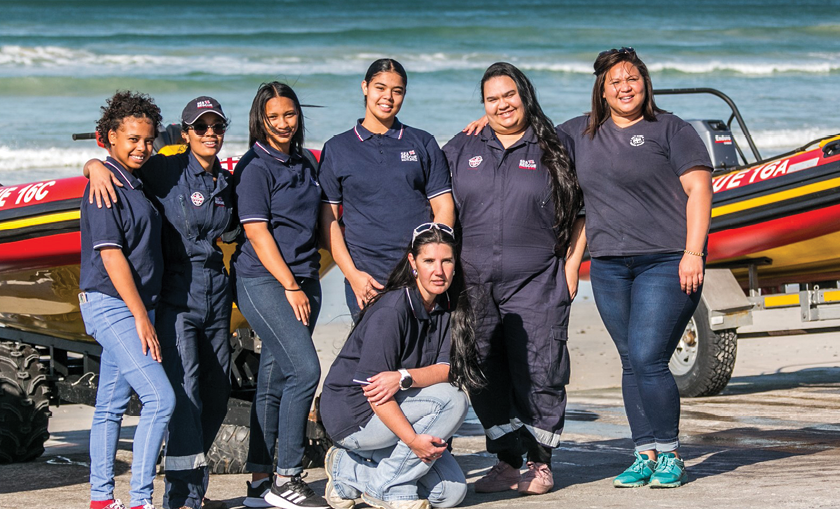
The National Sea Rescue Institute (NSRI) has stations on the coast around the country. At these stations, hundreds of people volunteer to assist the organisation with its work.
Established in 1971, Station 16 of the NSRI in Strandfontein has the most female members of any station in the country. The women here are between the ages of 17 and 51. They perform a wide variety of roles and duties, from checklists, radio communications, maintenance of vessels and, of course, heading out to sea to save people in distress.
Ilhaam Adams (51) is the oldest female member at the station. She came across the NSRI during an open day back in 2016, and decided to join up.
“The work that the NSRI was doing looked very interesting. Even though I was never very fond of the sea, I decided to join. It has been a fantastic journey since then.”
All the volunteers complete intensive NSRI basic training before becoming permanent members. Although they are not paid, they get the opportunity to take part in a number of additional courses which help with their personal growth and skills development.
Adams, for example, has done a number of courses, ranging from fire-fighting, to 4x4 driving, radio communications, crew development and others.
“I never thought I would be accomplishing all these things, especially at my age! But now I am the shore controller at the station, which means that I help the boats with launches and navigation,” says Adams, who highly recommends that young people volunteer with the NSRI.
The youngest member of the team is Michaela Leo (17), who is still a matric pupil.
“The NSRI not only gives you the opportunity to make a difference and give back to society, but also opens various doors in life and helps you gain experience in various things,” she says.
*For more information about volunteering with the NSRI, call 021 434 4011.